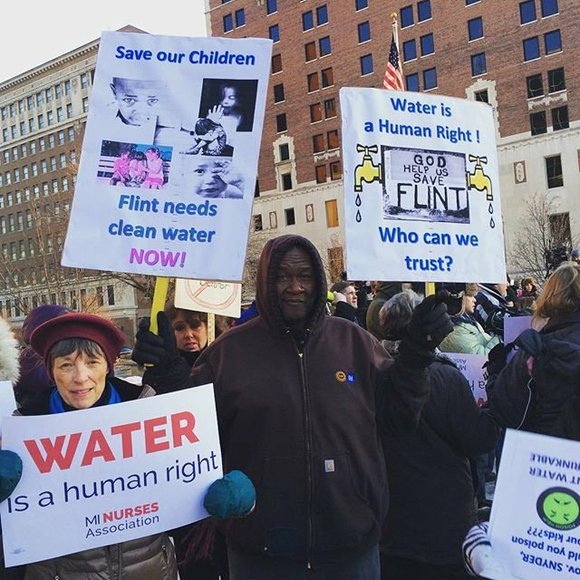The American Jobs Plan is the Fix America Needs

The water crisis in Flint, MI began in 2014 and remains unresolved.
In the United States, more than 2 million Americans live without access to clean drinking water and sanitation. This situation is unacceptable, and it would be grossly negligent of Congress not to pass legislation addressing the problem. The Biden administration proposed a $2 trillion infrastructure plan, called the American Jobs Plan, on March 31. Among the plan’s many initiatives are economic incentives for electric vehicles and a plan to upgrade the country’s electric grid, but one of the most important parts of the package is its commitment to revamping the country’s water infrastructure.
The Flint, Michigan water crisis, one of the most infamous failures of U.S. water infrastructure in recent years, resulted in 12 deaths from lead poisoning and other diseases. The case attracted national attention and resulted in criminal charges against numerous state officials, including the former Republican governor, Rick Snyder. Even with that attention, it still took half a decade for the crisis to be resolved.
Many similar cases remain unnoticed. For example, in Martin County, Kentucky, one such crisis lasted for twenty years. In 2000, a local coal company dumped 300 million gallons of toxic chemicals, including arsenic and mercury, into the waterways. Although the problem has since been fixed, many families still do not trust the tap water. Problems with contaminated water can result from old lead pipes or toxic chemicals spilled by corporate entities, but the damage is usually the same: a myriad of health problems, including lead poisoning, liver and kidney damage, and cancer. In children, these dangers are even more pronounced; lead poisoning has been linked to developmental delays and a decline in IQ.
Clearly, something must be done about these issues with our country’s water. The problem isn’t a lack of resources, but rather a lack of will. The United States is the richest, most powerful country in the history of the world; the only thing stopping us from solving this problem is government inaction. No real interest in issues of water accessibility can be found in either federal or state governments, and the only time officials seem to care about the effects of their actions are in situations like Flint, when the scope of their is negligence exposed and there are real political consequences.
In some cases, officials have been able to suppress investigations into water crises without facing significant repercussions. When Martin County’s water was first contaminated, incoming officials from the Bush administration, led by then-Secretary of Labor Elaine Chao, used their power to pressure investigators into prematurely ending the investigation. The officials also influenced the content of the final report, downplaying the seriousness of the issue at the expense of public safety.
Luckily, the Biden administration has committed to breaking the cycle of negligence by proposing an over $100 billion investment in the country’s water systems. However, the infrastructure plan proposed by the president still faces major resistance from congressional Republicans. U.S. Today reports that Senate Minority Leader Mitch McConnell, Republican of Kentucky, has said that he would not support the infrastructure plan, because he believes the tax increases needed to pay for the plan are nothing more than “a Trojan horse for massive tax hikes and other job-killing left-wing policies.” However, the taxes he refers to would only affect corporations and the ultra-wealthy. Clearly, McConnell believes that the profit margins of multinational corporations and the fortunes of the 0.1% are somehow more important than regular Americans’ human right to clean water. This is completely repugnant, and the fact that McConnell even suggested it is a disgrace to the office he holds.
Congressional Republicans have offered a counter-proposal, a plan that only invests $35 billion in water infrastructure. Given that the American Society of Civil Engineers has said that the US must invest $1 trillion dollars over the next 25 years, the figure proposed by the Republicans is shockingly low.
Biden’s infrastructure plan is a good start in addressing the U.S. water crisis. It ends years of governmental inaction and promises a future in which millions more Americans have access to clean drinking water in their homes. The bad news is that unless Democrats vote to remove the filibuster, they will need to win the votes of at least 10 Republican Senators in order to pass the bill. Those votes are unlikely to be secured without compromising on many of the important issues the bill addresses.
However, this is not the time to capitulate to Republicans’ demands. The status quo is unacceptable, and the Democratic leadership must hold its ground. American lives are at stake, and to settle on this issue would be to give up those lives. That would be morally intolerable, and so Democrats must use every means in their power to pass the American Jobs Plan.





